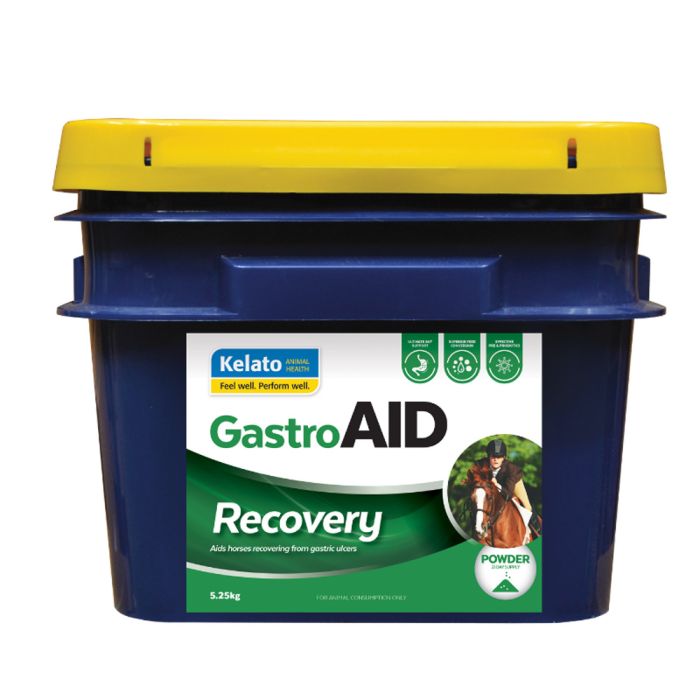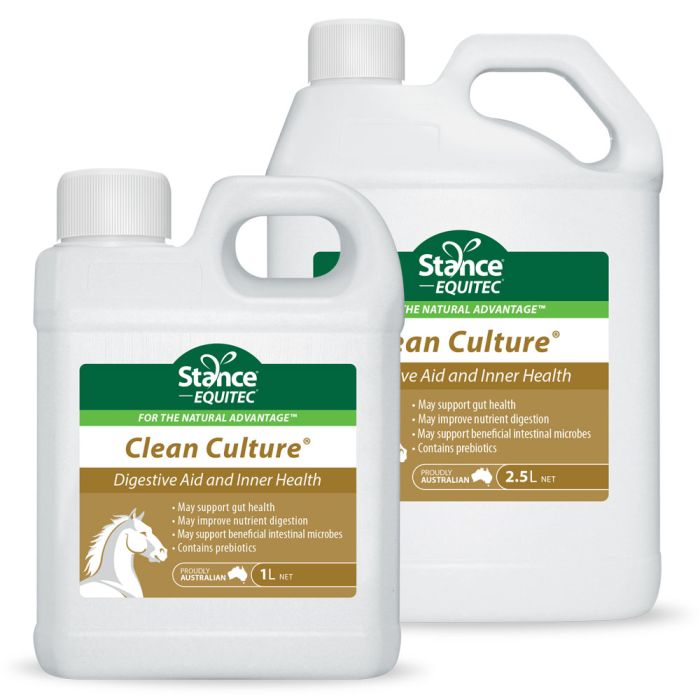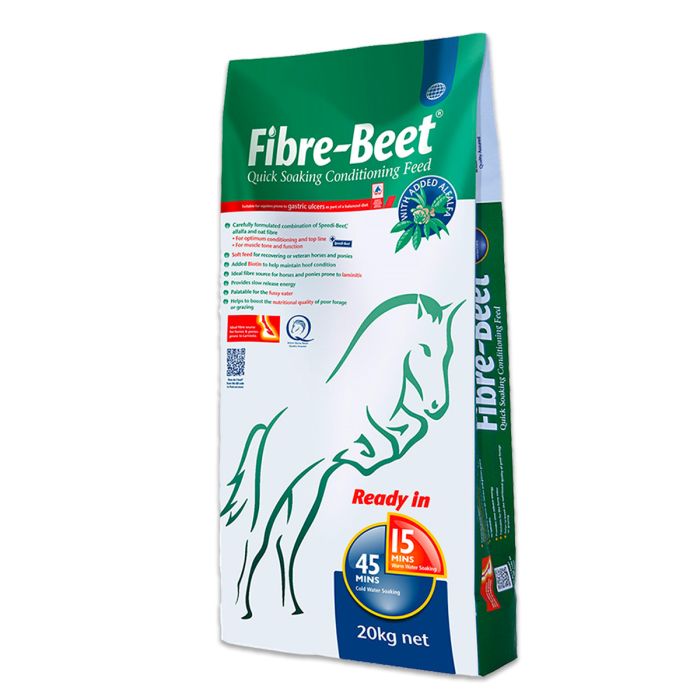GastroAid Recovery - Kelato
Starting at $131.60 $164.50
KEL-GA-G
GastroAid Recovery is a natural supplement with patented ingredients designed to promote wellness, optimal digestion and optimal performance. Specifically for horses with "stress stomach".
GastroAid Recovery is a natural supplement with patented ingredients designed specifically for horses with"stress stomach" and is an alternative to other treatments and synthetic medications.
The Benefits of GastroAid Recovery
Prevents "stress stomach" Forms a protective gel lining on the gut
> Neutralises excess gastric acid
What is GastroAid Recovery
The GastroAid concept consists of 2 types of stabilising dietetic feed supplements:
1. GastroAid Recovery : used as the first dietetic feed when "stress stomach" is observed.
2. GastroAid Everyday : used as the second "follow-up diet" to maintain proper stomach function.
How GastroAid Works
The active nutraceuticals in GastroAid work 5-fold:
> Ave-Vita: A patented fibre-rich whole oats meal forms a gel which lines the gut wall delaying gastric emptying, assisting in the neutralisation of stomach acids.
> Phospholipids: Protect the hydrophobic lining of the gastric mucous membranes and epithelial surface against destruction from the corrosive gastric acids.
> Dietetic Fibres: Stabilise the function of the stomach and the colon.
> Pectins: Protect the stomach lining against excess gastric acid and bind the toxins contributing to diarrhoea.
> Antacids and neutralising buffers: Instant and sustained neutralisation of excess gastric acid to protect the stomach lining against destruction.
Ingredients
Ave-Vita®, alfalfa meal, glucose, products and biproducts from dried fruit, sodium bicarbonate, calcium carbonate, magnesium oxide, lecithin, pectin, calcium propionate.
Available Sizes
Available is 5.25kg pails. this provides 3 weeks dosage for a 500kg horse.
Directions for Use
GastroAid Digestive
> Administer 50 grams per 100Kg body weight for a minimum period of 2 weeks, divided into the morning and evening feeds.
GastroAid Stabiliser
> Foals and yearlings: Feed 125 grams daily for a minimum of 2 weeks, split over 2 feeds throughout the day.
> Horses in training: Administer 250 grams daily for a minimum of two weeks, split over two feeds throughout the day.
"Stress Stomach in Horses"
"Stress stomach" symptoms can consist of the following:
> Decreased performance
> Poor appetite and failure to thrive
> Attitude and temper changes
> Weight loss
> Teeth grinding
> Wind sucking
> Rough coat
"Stress stomach" is a common occurrence for horses not in their natural environments, affecting approximately:
> 80-90% of thoroughbreds
> 50% of all horses in training
> 60% of foals
*Louisiana State University trial
“Stress Stomach” Reduces Performance
There is no doubt that a stressed stomach reduces the athletic performance of horses. The frequency of this in performance horses, racehorses and endurance horses has been shown to be far higher than originally thought, between 60-90%. It follows then that if “stress stomach” can be healed and prevented, what improvements in performance may be gained?
The Horse in Nature
The horse in nature is a perpetual grazer. Over the course of a normal day, sixteen to eighteen hours would be spent eating low quality roughage, two hours sleeping and one hour running from predators. Unlike humans, the horse’s digestive system has evolved to be continually full. The stomach is small and divided into two halves – upper and lower.
It secretes gastric acid 24 hours a day to break down the large amounts of fibre, such as grass and hay. In its natural setting, a horse chews constantly producing saliva which neutralizes this gastric acid.
The Horse in Training
The incidence of stress stomach in horses kept in a natural state is very low. Once a horse is taken off pasture and fed only a few times a day, hydrochloric acid is produced between meals which may corrode the upper part of the stomach creating painful erosions in the stomach lining and in the duodenum possibly within 7 days. Other factors contributing to stress stomach include: feeding high grain diets, stabling, strenuous training, travel, changed environments, NSAID medications, the weaning process and other unnatural or stressful situations. Stabled horses often exhibit certain behaviours which many owners and trainers consider ‘normal’. Research suggests that behaviours such as pawing, biting, kicking and aggression are often indicators of the presence of painful lesions.
Exercise and Hydrochloric Acid
Apart from the restricted feeding times when stabled, increased intra-abdominal pressure during exercise can cause gastric compression, which pushes the acidic contents into the top regions of the stomach. This exposes the unprotected upper half of the stomach to hydrochloric acid and lesions can easily form.
How to Manage “Stress Stomach” Syndrome
Giving access to grass or large amounts of high quality roughage, feeding smaller meals 4-6 times daily, reducing the quantity of grain in the feed, reducing competition hours, transport times and other stressful situations will all lower the risk of stress stomach. If these actions are difficult to institute, a new cost effective solution is available from Kelato Animal Health to reduce the symptoms of stress stomach and get your horses back to optimal performance.
Kelato’s new GastroAid is a natural supplement with patented ingredients designed specifically for horses with stress stomach. Trialled by independent researchers and stables, it is the new natural alternative to other treatments and synthetic medications. The GastroAid concept consists of two stabilising dietetic feed supplements.
1. GastroAid Digestive, used as the first dietetic feed when stress stomach is observed. Follow this treatment with:
2. GastroAid Stabiliser to maintain proper stomach function and neutralise excess gastric acid.




